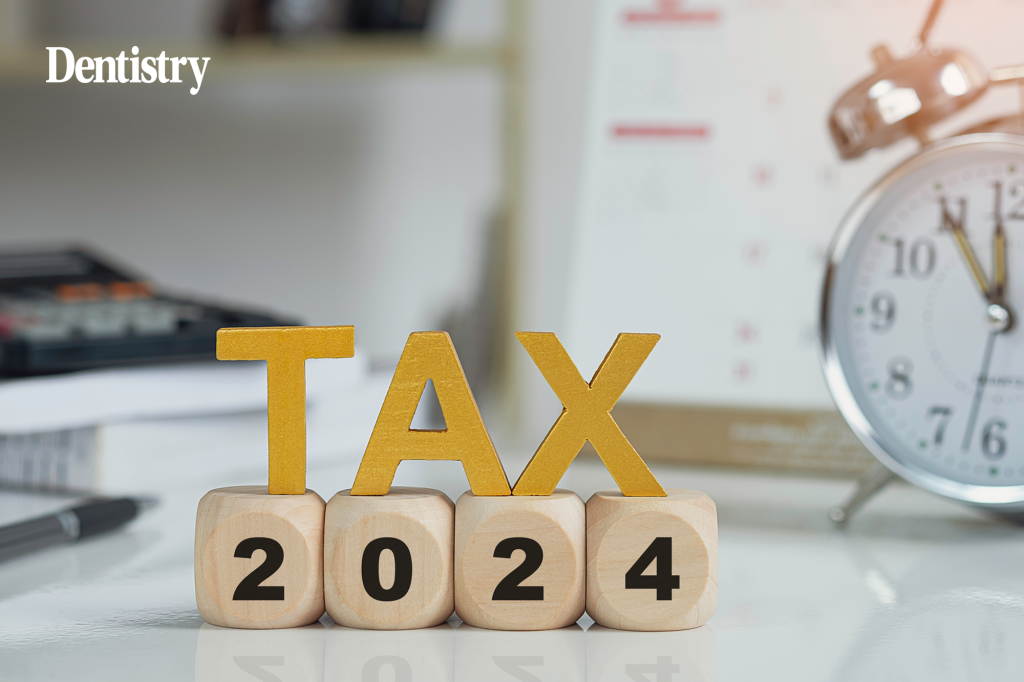
Now that the 2023/24 tax year is over PFM Dental looks forward to the 2024/25 tax year and what you as a dentist need to do to be prepared for the new year.
Firstly, there have been a few changes to the tax rules after the chancellor’s budget in March 2024.
Several of these changes will affect self employed dentists:
- Lowering of national insurance rates for the lower rate of Class 4 NIC from 9% to 6%. The lower rate of Class 4 NIC is paid on self employed earnings between £12,570 and £50,270. For income above this you will pay at the standard 2% rate
- The high-income child benefit tax charge threshold has been raised from £50,000 to £60,000
- The child benefit charge has been reduced so that you now repay 1% of the child benefit received for every £200 over £60,000 you earn. This results in the full amount of child benefit being repayable for earnings over £80,000
- The higher rate of capital gains tax for the sale of rental properties has been reduced from 28% to 24%. The higher rate affects you if your income for the year is above £50,270, or the gain brings your income over this level.
The main income tax rates have been frozen since the 2021/22 tax year. This is scheduled to last until at least the 2027-28 tax year.
What do these tax changes mean?
As we have seen the impacts of higher inflation and mortgage costs increasing, it is understandable that you will need to earn more to maintain the same standard of living.
The income tax rate threshold freezes have resulted in people moving into higher tax rates to afford the same living standard. This is known as fiscal drag.
We have seen clients being dragged into these higher rates of tax, and having to pay more money to HMRC.
When you earn £99,999 you are taxed at a marginal rate of 42% (40% higher rate income tax, 2% higher rate national insurance contribution). This rises to 51%, if you still have a student loan.
Once you earn over £100,000, you start to lose your personal allowance. One pound is lost for every two pounds you earn over £100,000. This loss of your personal allowance means more of your income is taxed at the basic rate ie 20%. This raises your effective tax rate to 71%.
If you have children the situation is even worse, as you start to lose the tax-free child care. You can receive a maximum of £2,000 a year under the scheme. However if your income is above £100,000, you lose the tax-free child care entirely.
This means that if you earn £105,000 for the 2024/25 tax year, where as you previously earnt £100,000 the additional £5,000 of income will cost you:
- £3,100 in tax
- £450 Student loan payments
- £2,000 in tax-free childcare.
The ‘cost’ of earning the additional £5,000 would be £5,500.
In this scenario you would not actually start receiving more money until you earnt £107,000.
What can be done?
Some associate dentists opt to work less hours if they know their income is going to be particularly high. As highlighted in the case above, they would be working to pay more.
Incorporation is a potential option. However this is a more permanent option and comes with the additional administrative burdens of running a company. Incorporation may not be for you, especially if you have a large amount of NHS income.
Crucially, the loss of your personal allowance and tax-free child care are assessed on your adjusted net income.
Your adjusted net income is calculated as your income from the year ie profits, bank interest etc, minus gift aided charitable contributions and private pension contributions.
This means you can make private pension contributions to lower your adjusted net income and keep your personal allowance and maintain the tax free child care.
As we have passed the end of the 2023/24 tax year, we are looking towards the 2024/25 tax year. If you believe that your income will be over £100,000 for the 2024/25 tax year, we would recommend speaking to your financial advisor to see if pension contributions for the year are appropriate.
If you would like to speak to one of the team here at PFM about your tax you can contact us here: pfmdental.co.uk/contact/.


